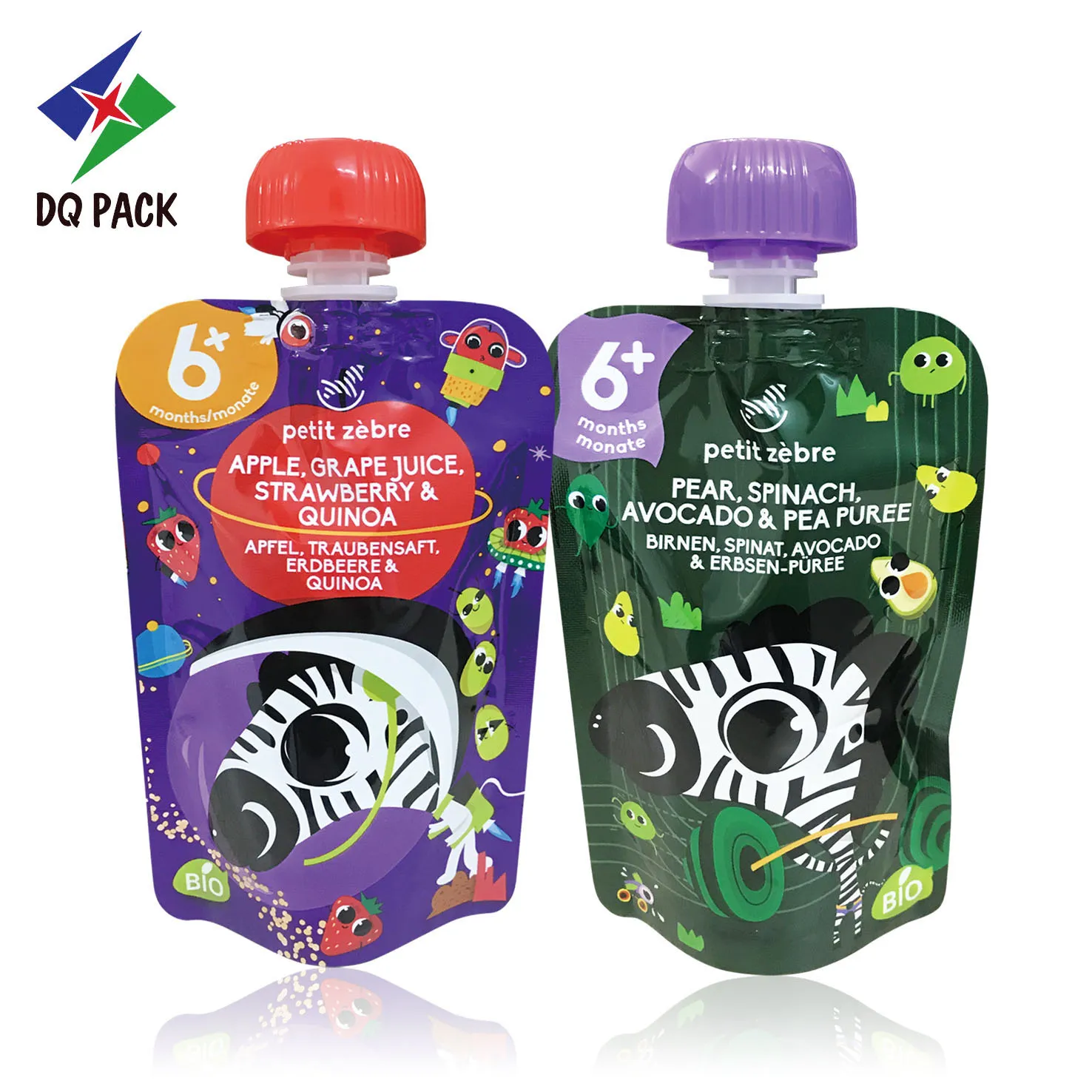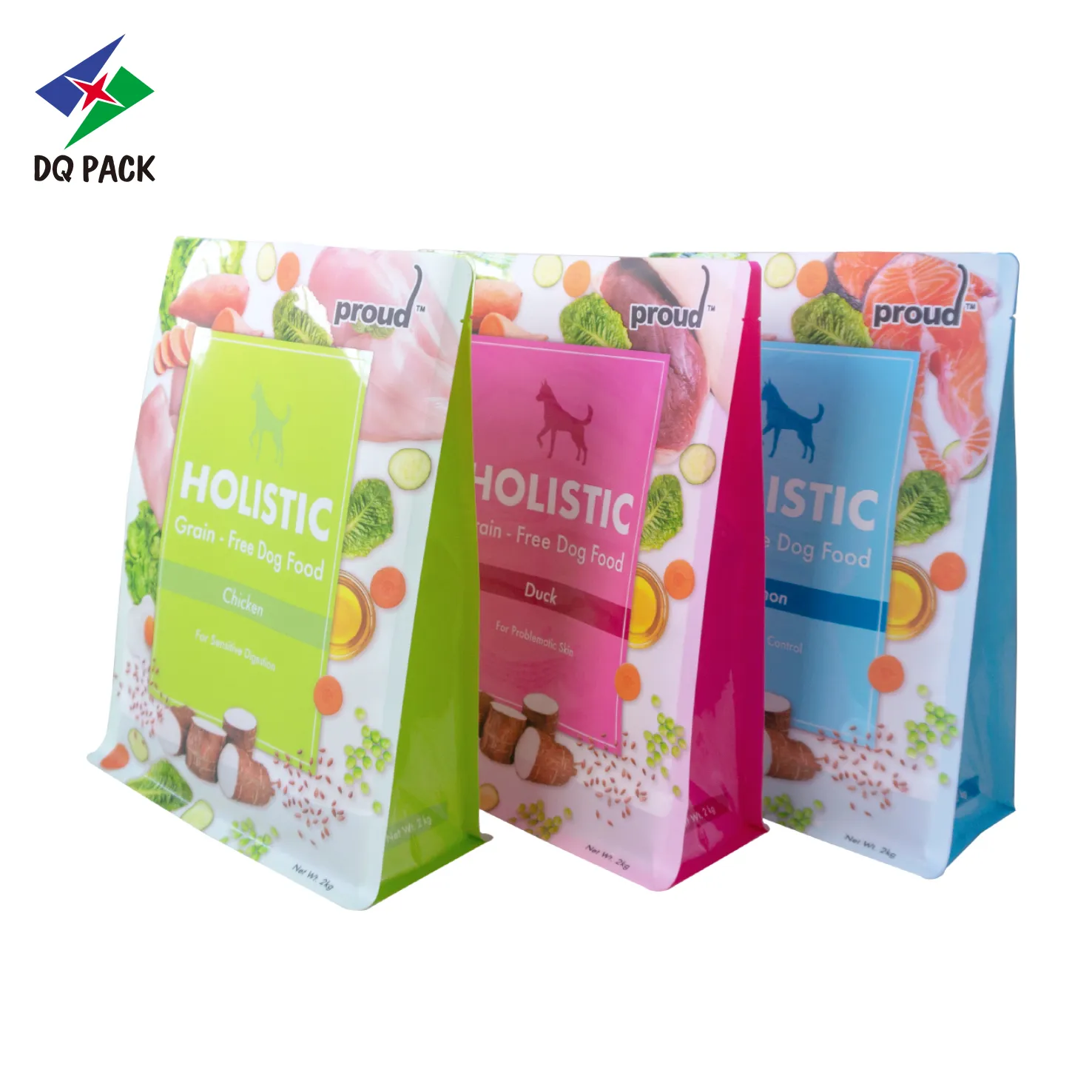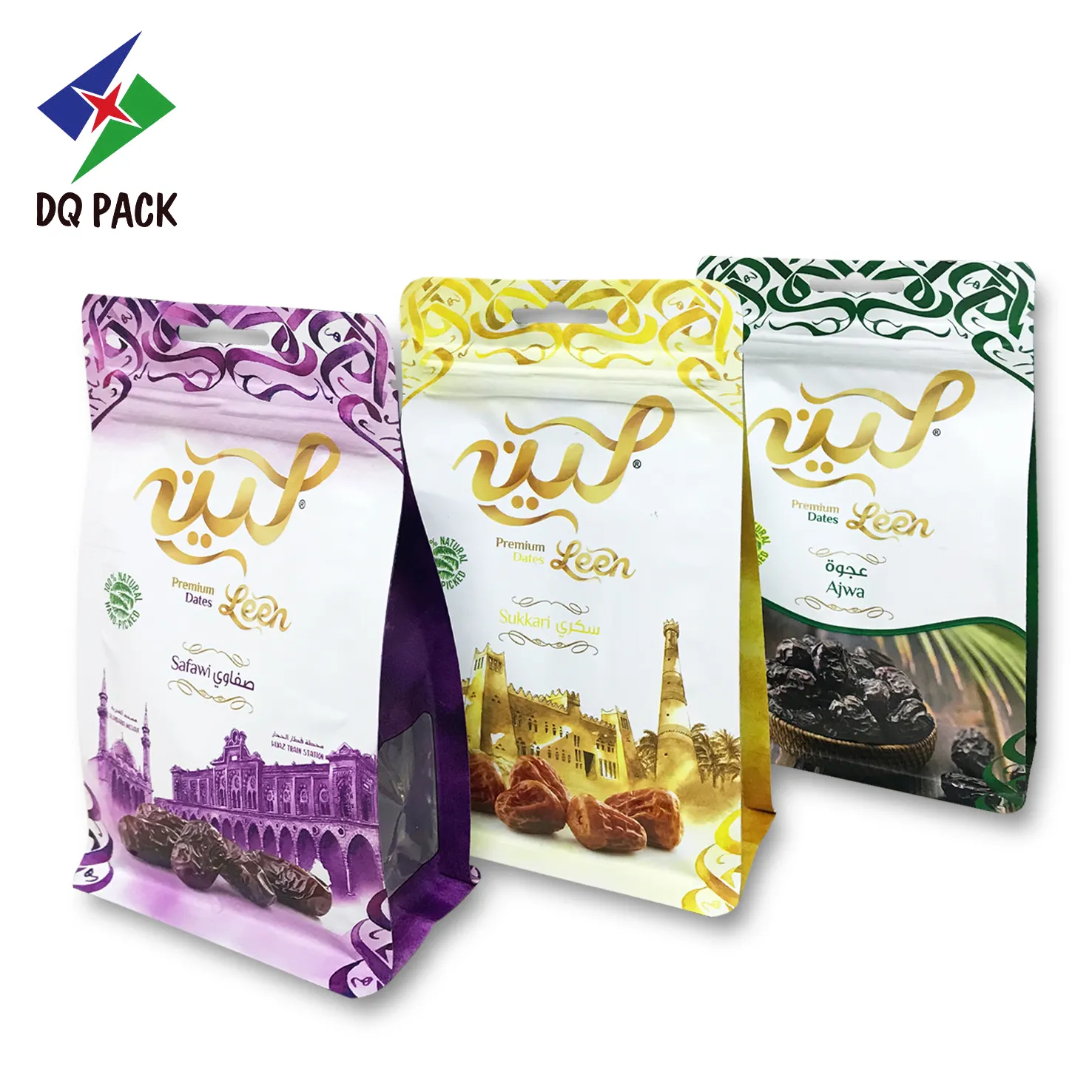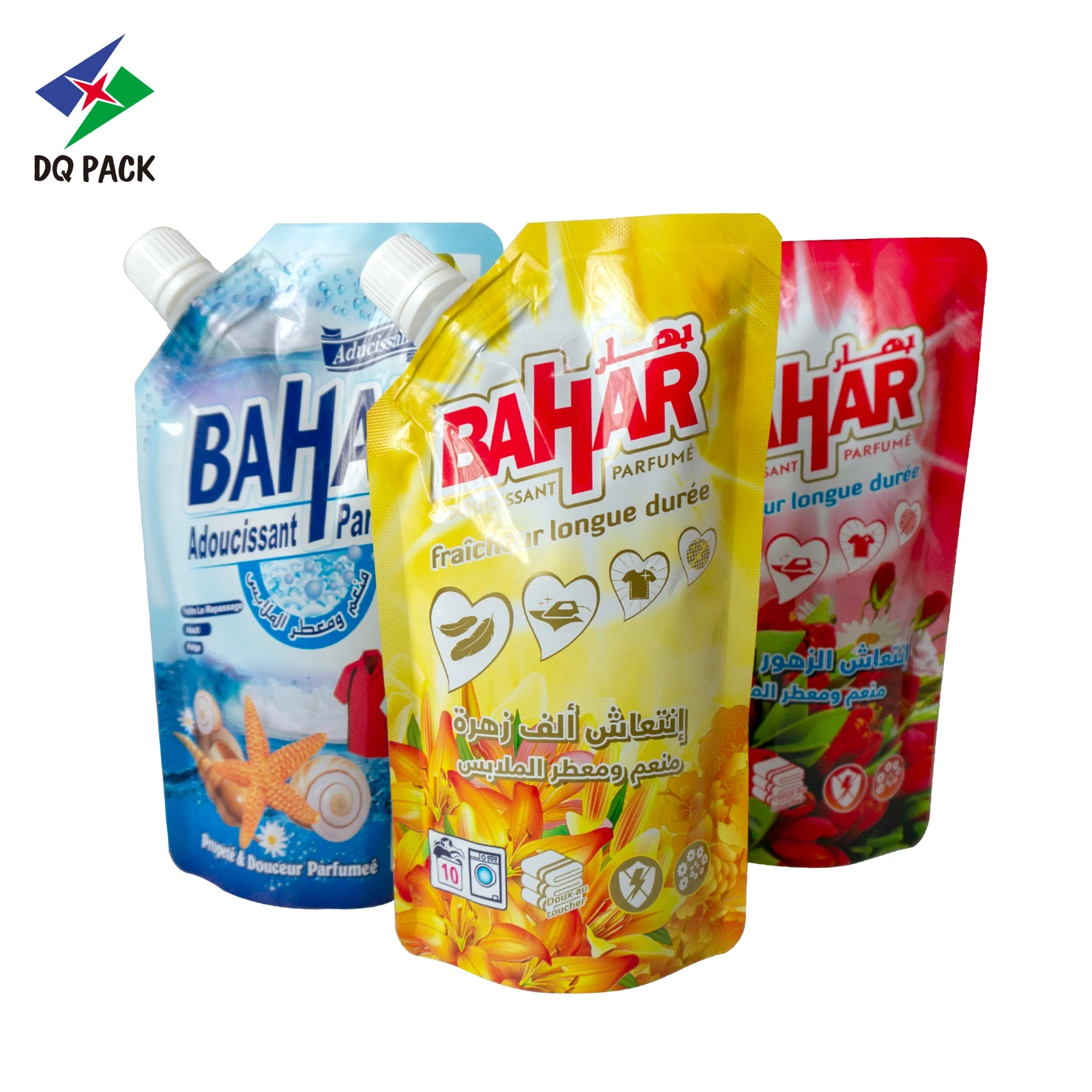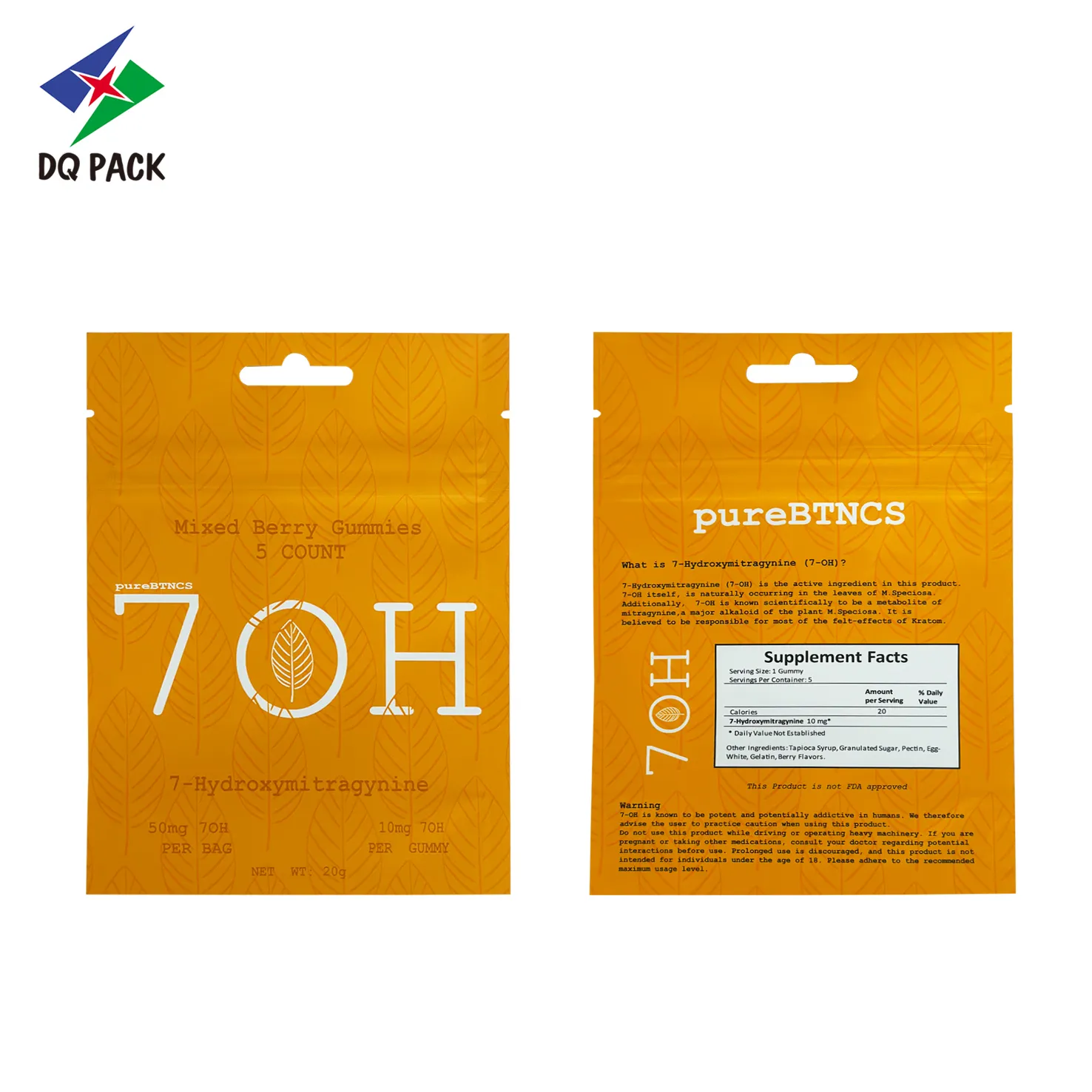In the infant care market, which increasingly prioritizes convenience and safety, baby food pouches have become the preferred packaging format for parents. Not only are they lightweight and easy to carry, but they also keep food fresh and safe outdoors, during travel, and for everyday use. Faced with numerous brands and custom styles, many buyers and even end users ask, “Which baby food pouches are truly safe?”
To this end, we’ve thoroughly analyzed the question of “which baby food pouches are safe” from multiple perspectives, including structural design, safe materials, environmental performance, customizable functions, and user guides. As an experienced baby food packaging manufacturer, DQ PACK meticulously provides environmentally friendly and safe baby food pouches and supports Настройка OEM/ODM of custom food pouches, helping brands enhance quality and differentiation from the source.

Baby Food Pouch Packaging Material Safety
When choosing baby food pouches, the top priority is whether or not the packaging material is food safety grade.
Safe general materials include:
- PET, PE, LLDPE, and multi-layer composite films. These foods are BPA-free and have ensured that food is stored contaminated during transportation and storage.
- High-quality straw bags are usually leak-proof, UV-resistant, oxygen-proof, and moisture-proof, effectively preserving baby food freshness.
Advantages:
- High barrier protection: shelf life improvement and spoilage prevention.
- Clearance and peace of mind: Some packaging uses transparent materials so that customers can see the ingredients themselves, generating confidence.
- Safety and chemical residue-free: BPA and plasticizers such as phthalates are free.
Customers need to find a good baby food packer manufacturer so that they can get international-quality products that respond to environmental as well as safety considerations.
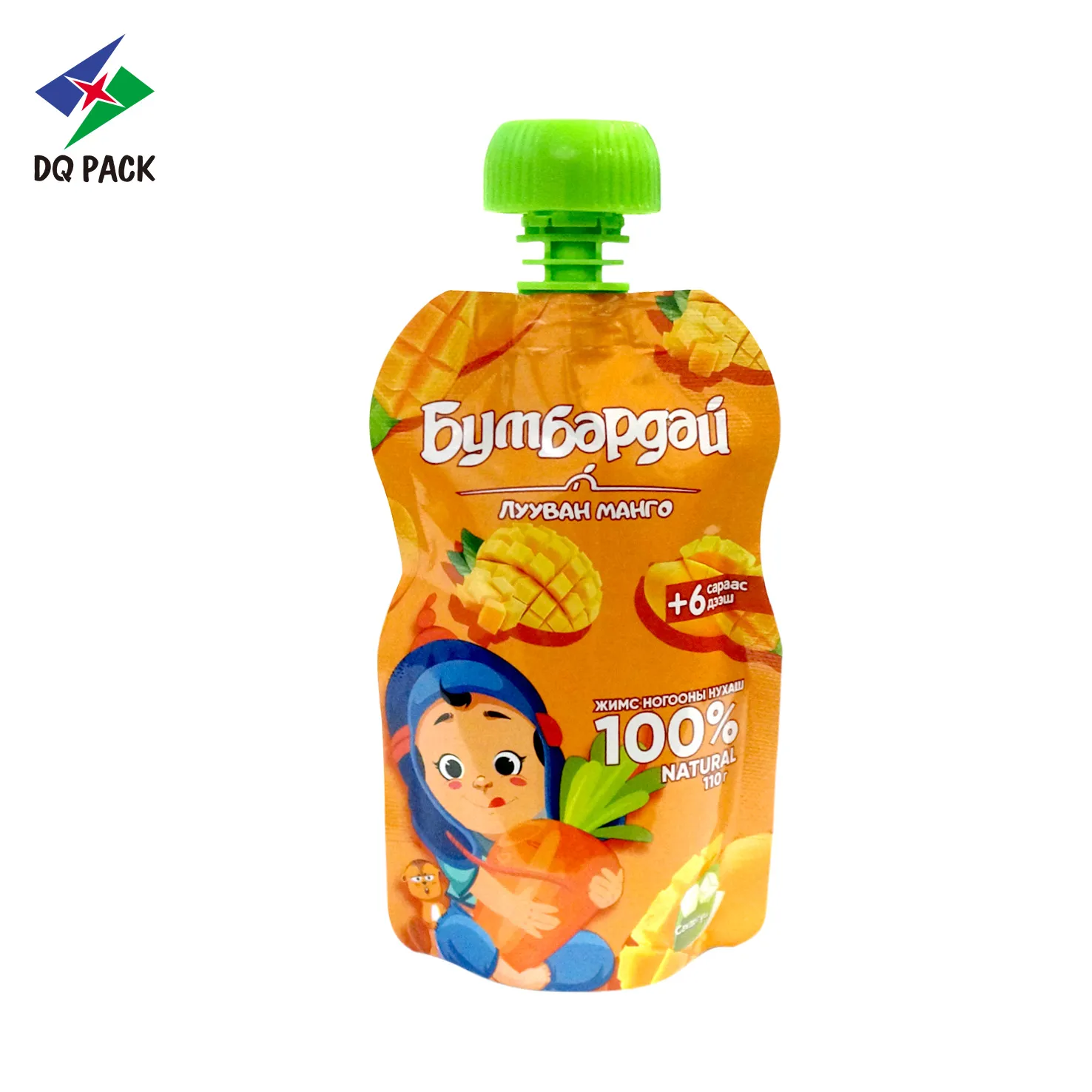
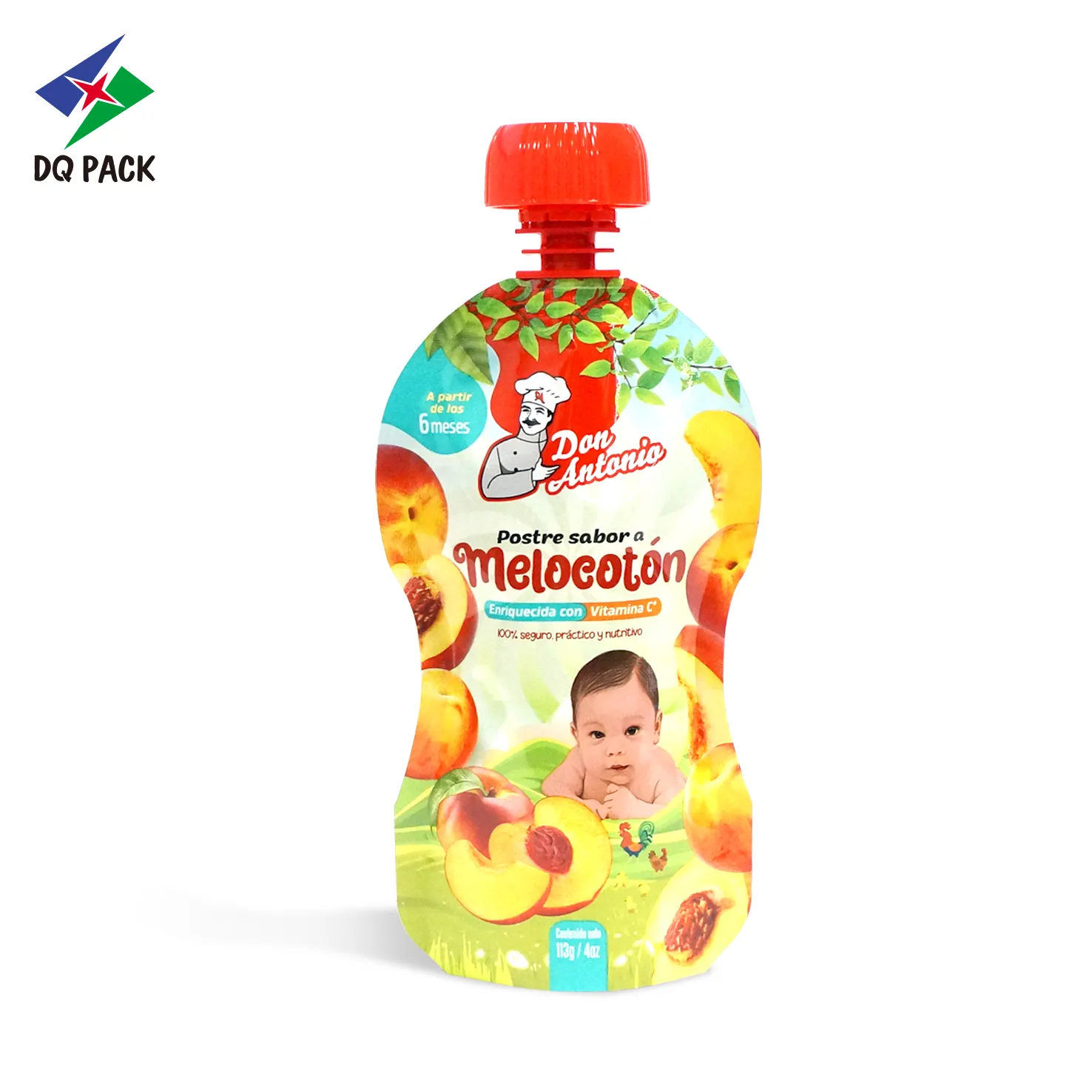
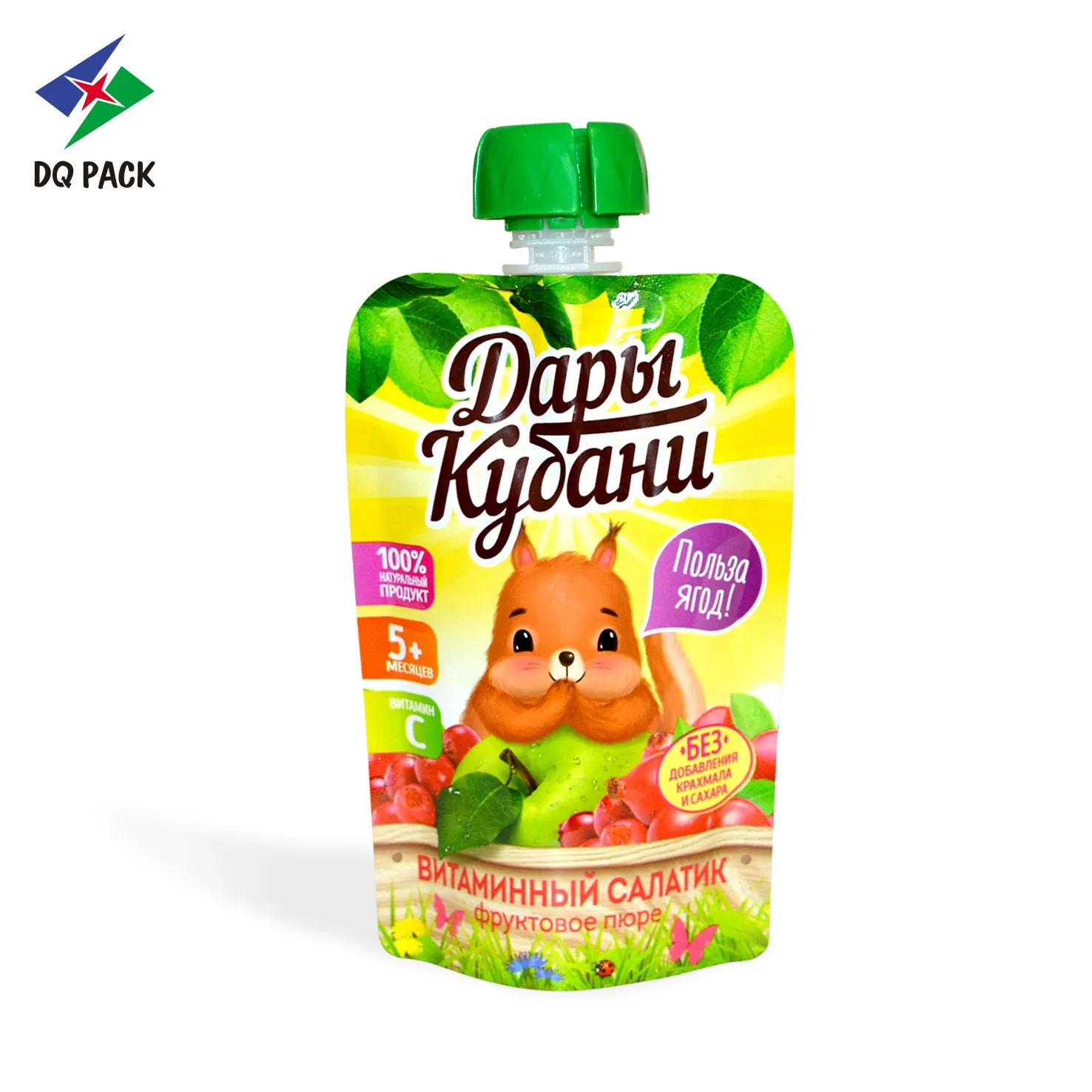
Environmental Advantages of Baby Food Pouches
According to a TerraCycle study:
In comparison with plastic jars and bottles, baby food pouches save around 62% of plastic weight, 61% of fossil fuels, 59% of CO₂ emissions, 72% of water, and 49% of landfill waste.
The above figures demonstrate that the choice of quality custom food pouches not only enhances the product experience but also reduces the environmental impact considerably and demonstrates a company’s social responsibility.
Advantages:
- Portability: Parents easily carry these pouches while moving out or feeding the baby daily.
- Less Waste: Single-packaging prevents food from spoiling.
- Improved Packaging: Baby food pouches release less carbon during transportation than glass bottles.
Possible Risks:
- Nutritional Concerns: Certain packaged foods have excessive sugar levels and lack facilities for chewing training.
- Oral Health: Employing straw pouches for extended feeding can result in a greater likelihood of tooth decay.
- Contamination Risk: Heavy metal contamination has led to recalls.
Therefore, choosing a safe product is not only a function of the brand but also the packaging material and manufacturing process.
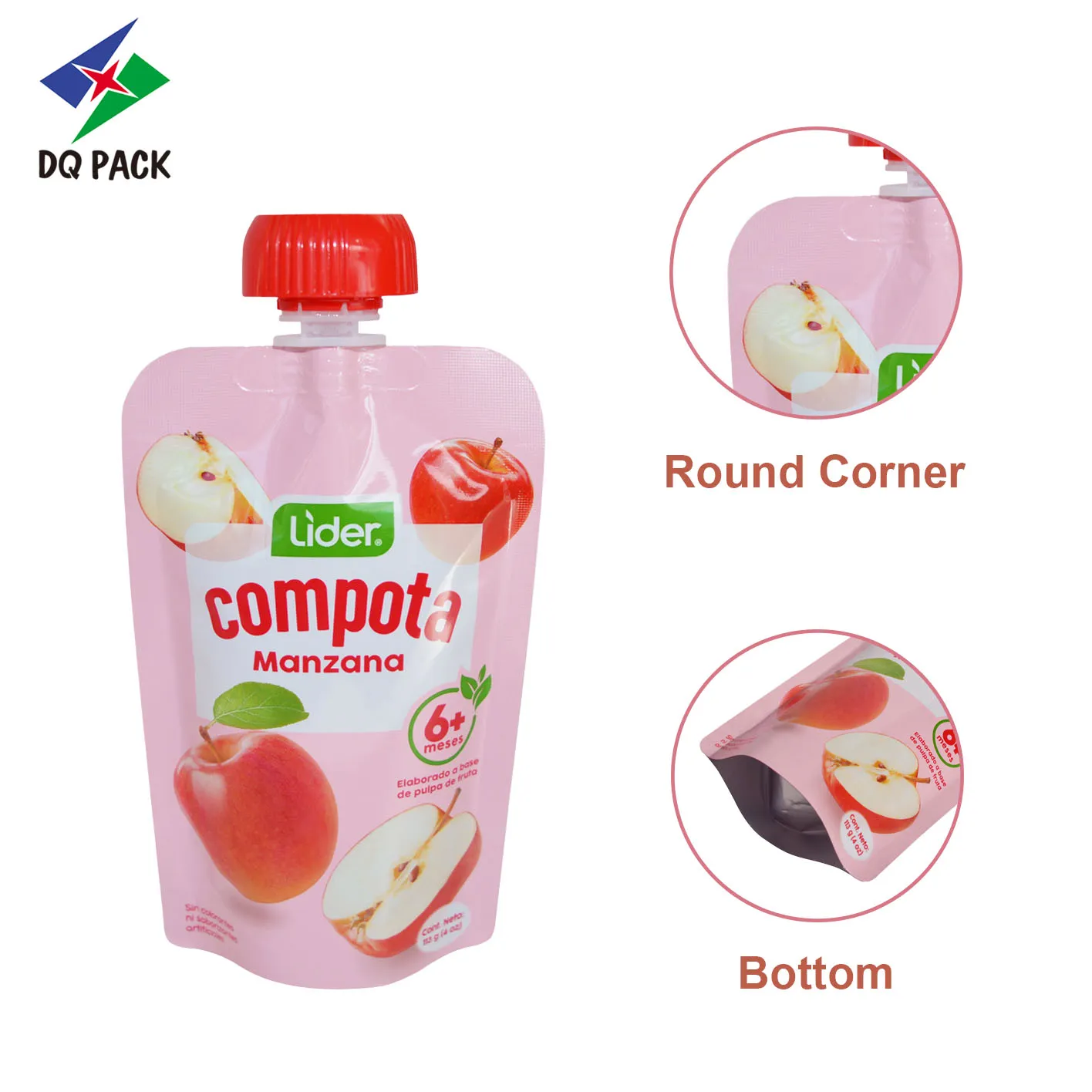
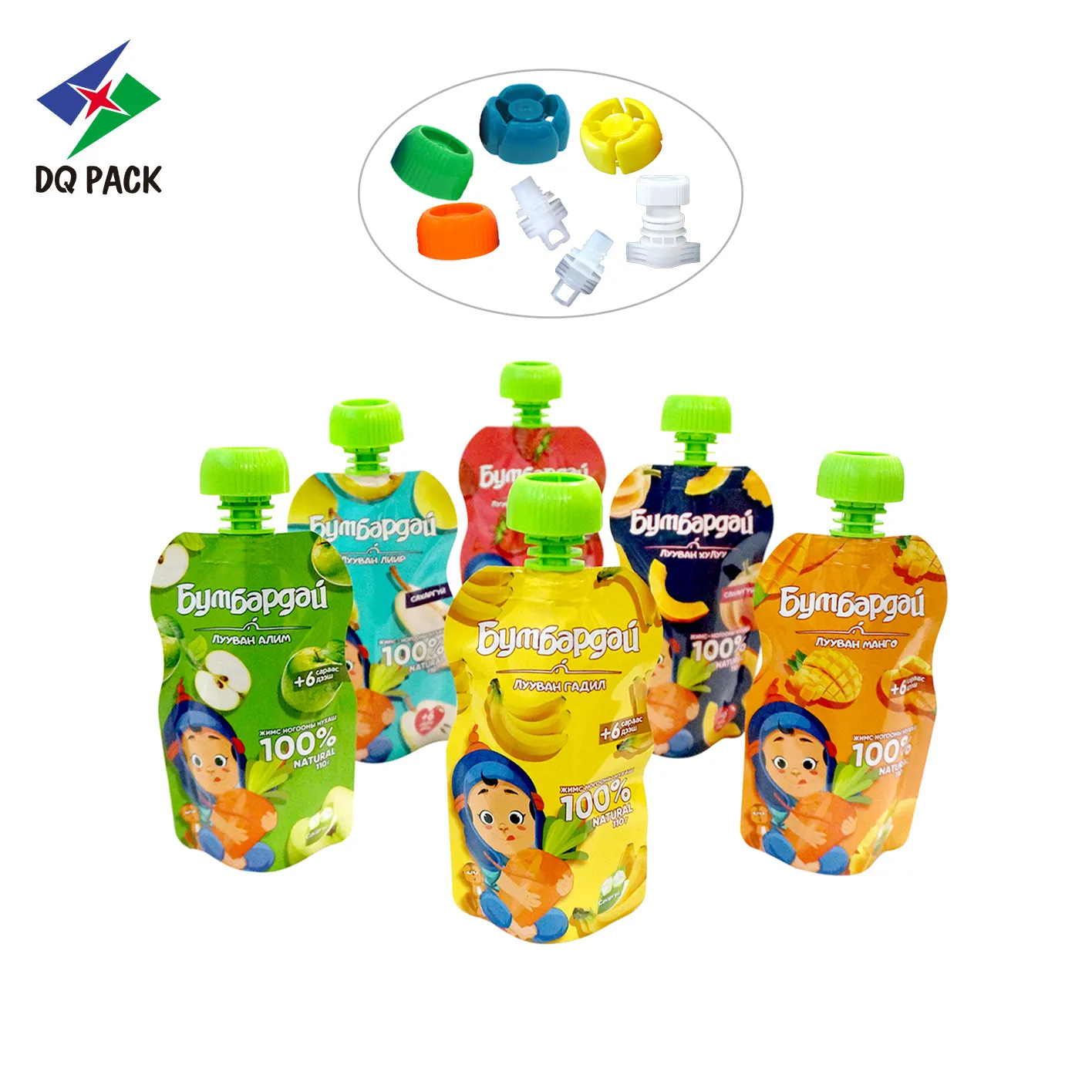
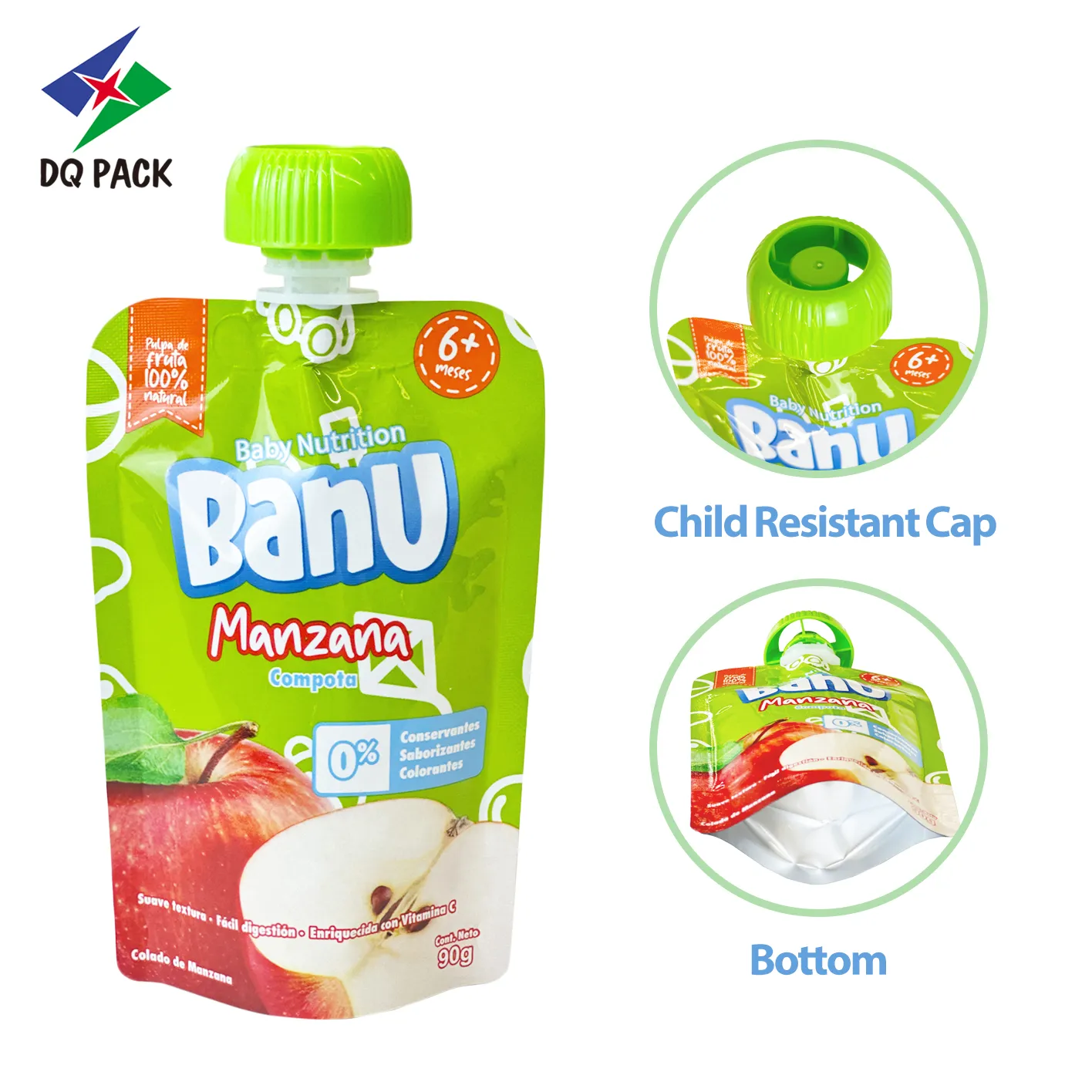
How to Determine Which Baby Food Pouches Are Safe?
Material Certification
Choose BPA-free and phthalate-free packaging materials.
Check whether the supplier has FDA and SGS certification.
Brand and Supply Chain Transparency
Brands that are certified (e.g., Clean Label Certified) are more trustworthy.
Procurement buyers should choose baby food packaging manufacturers with comprehensive quality inspection systems.
Packaging Process
Is it a high-barrier, multi-layer composite film?
Is it leak-proof and self-sealing?
Environmental Properties
Customized food pouches that can be recycled and biodegradable are widely in demand.
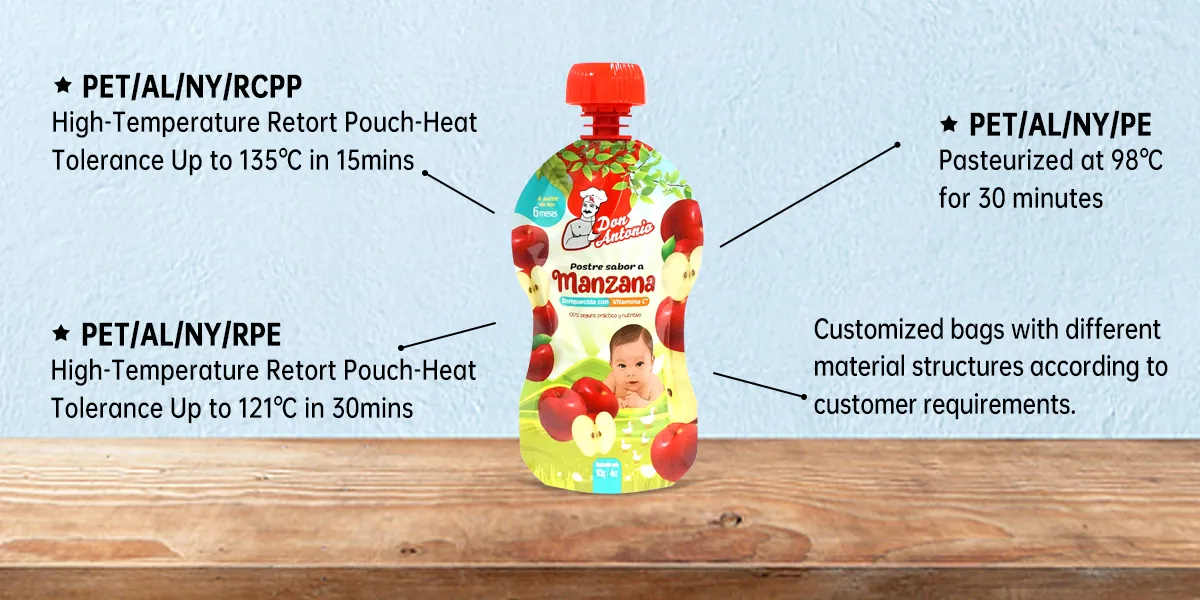
Can Baby Food Pouches Be Taken on Airplanes?
Many parents ask: Can you bring baby food pouches on planes?
The answer is: Yes. According to TSA regulations, baby food is not subject to the 3-1-1 liquid restriction, and parents can bring a reasonable number of baby food pouches on board. However, additional inspections may be required during security checks.
Frequently Asked Questions about Baby Food Pouches
Which material is safest for baby food pouches?
Food-grade PET/PE/aluminum foil composite film, and must be BPA-free.
How long can an opened pouch be stored?
It is recommended that it be consumed within 24 hours to prevent bacterial growth.
Can baby food pouches be reused?
Reusing disposable bags is not recommended. Washable custom food pouches are available.
Can straw bags be microwaved?
Not recommended. Some packaging containing aluminum foil is unsafe for heating. Food should be removed and heated.
What should I consider when purchasing baby food pouches?
Material safety, environmental performance, supplier qualifications, and whether custom food pouches can be customized.
Заключение
When answering the question, “Which baby food pouches are safe?”, we can clearly state the following:
Safety depends on the packaging materials, production process, nutritional content, and supplier qualifications.
For consumers, choosing certified baby food pouches provides greater peace of mind.
For buyers, choosing a reliable baby food packaging manufacturer ensures product safety and environmental protection from the source.
As an experienced baby food packaging manufacturer, DQ PACK not only provides safe and environmentally friendly baby food pouches, but also develops customized food pouches according to customer needs, helping brands stand out in this competitive market.

